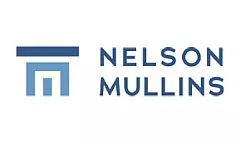- within Consumer Protection, Criminal Law and Antitrust/Competition Law topic(s)
- in United States
- with readers working within the Consumer Industries and Utilities industries
In a closely watched order issued July 11, 2025, the U.S. District Court for the Middle District of Florida addressed a previously unresolved and critical question under Florida law: whether remediation costs for defective design work constitute direct damages, even when the work is performed by third-party contractors. The court answered yes, denying a motion for summary judgment filed by HKS Architects Inc. and its structural engineering subcontractor, BBM Structural Engineers Inc., who argued that the Owner's multimillion-dollar structural repair claims were barred by a standard contractual waiver of consequential damages.
HKS and BBM had argued that the cost to repair the design defects were consequential damages barred by the consequential damages waiver in the agreement. The court disagreed, holding that remediation expenses incurred to correct design defects are direct damages that flow naturally and necessarily from the architect's breach of its core design obligations.
The dispute arose from the construction of a large health care facility in Central Florida where multiple design errors, including missing reinforcement and flawed cantilever supports, forced the owner to demolish and rebuild substantial portions of the facility mid-project. HKS and BBM, relying heavily on Keystone Airpark Authority v. Pipeline Contractors, Inc., a 2019 First District Court of Appeal decision often cited by design professionals to attempt to broaden the scope of "consequential damages," argued that because the owner paid third-party contractors to do the repairs, the costs were unrecoverable under the AIA B101-2017 agreement.
Judge John Antoon II's ruling reaffirms a core principle on the nature of direct damages in construction disputes: owners do not waive the right to recover the direct costs of correcting defective design work, in a contract with a consequential damages waiver clause, simply because the remediation is performed by third parties. The ruling clarifies an unsettled issue under Florida law that has not been directly addressed by the state's appellate courts. It confirms that remediation costs for defective design work are direct damages when they flow directly from the breach of the design professional's core contractual obligations, not from separate dealings with third parties or losses outside the immediate buyer-seller transaction. The ruling confirms that remediation costs for defective design work are direct damages when they flow directly from the breach of the design professional's material contractual obligations. These costs are distinct from losses that arise from separate dealings with third parties or outside the immediate buyer-seller transaction, such as lost profits or reputational harm. The opinion underscores that remediation costs directly tied to flawed plans do not become indirect merely because they pass through third-party construction contracts.
Practitioners tracking Keystone Airpark will view this decision as a clear statement on the limits of shifting design risk through standard waivers of consequential damages. The court distinguished Keystone Airpark on material facts. In Keystone Airpark, the damages stemmed from a contractor's defective performance that could have occurred independently of the engineer's inspection duties. Here, by contrast, the court found no dispute that the costs at issue resulted directly from deficiencies in the architect's plans.
This decision provides useful guidance on how Florida courts will interpret damage waivers in future construction disputes. It underscores the limits of risk-shifting provisions and preserves the ability of owners to recover direct remediation costs when professional design errors require correction. The case is Orlando Health, Inc. v. HKS Architects, Inc., No. 6:24-cv-00693-JA-LHP (M.D. Fla.). Orlando Health is represented by Jeremy Springhart, Christina Lehm, Robert Alfert, and Megan Schroder of Nelson Mullins.
The content of this article is intended to provide a general guide to the subject matter. Specialist advice should be sought about your specific circumstances.





